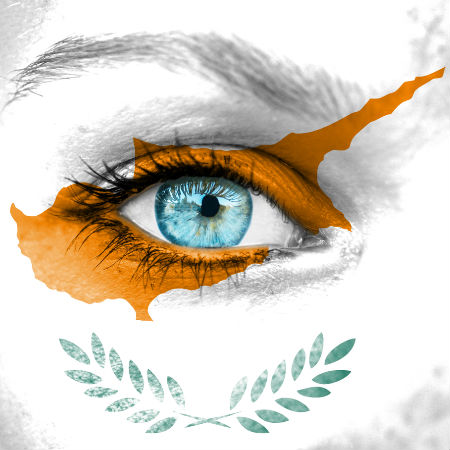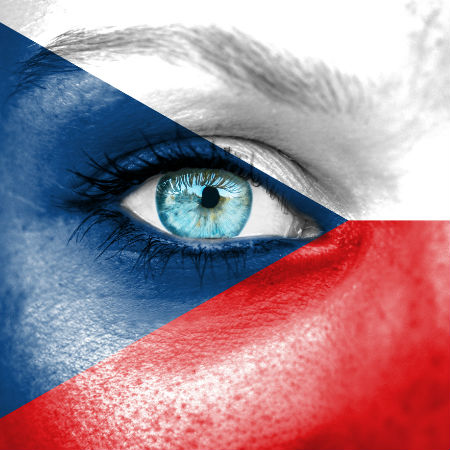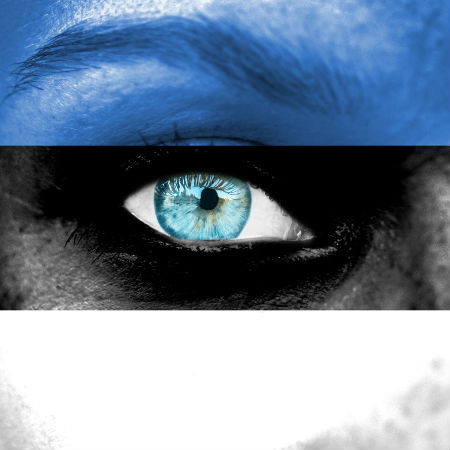
What is the Eurovision Song Contest?
Started way back in 1956 as a way of drawing a fractured Europe back together with the healing power of music, the Eurovision Song Contest, or Concours Eurovision de la Chanson – the contest is telecast in both English and French – is open to all active members of the European Broadcasting Union, which oversees the competition.
Each country is permitted to submit one three-minute song to the contest – a song which is selected by a variety of means, usually a winner-takes-all competition such as Sweden’s renowned Melodifestivalen – which they perform in one of two semi-finals in the hopes of making it to the glittering grand final.
Only six countries have direct entry into the grand final:
* The Big Four who fund most of the contest – UK, Germany, France and Spain
* The host country (which is the winner of the previous year’s contest)
* Italy, who didn’t take part for many years and was re-admitted in 2011 after a 14 year absence (it was one of seven countries that competed in the first event), making the Big Four the Big Five.
The winner is chosen by a 50/50 mix of viewer votes (you cannot vote for your own country) and a jury of music industry professionals in each country, a method which was chosen to counter the alleged skewing of votes based on political and/or cultural lines when voting was purely the preserve of viewers at home.
Past winners include, of course, ABBA in 1974 with “Waterloo” and Celine Dion who won for Switzerland in 1988 with “Ne partez pas sans moi”.Above all though, the Eurovision Song Contest is bright, over the top and deliciously camp, a celebration of music, inclusiveness and togetherness that draws annual viewing figures in the hundreds of millions.
This year’s contest will be held in Tel Aviv, Israel.
AUSTRALIA: “Zero Gravity” by Kate Miller-Heidke

THE ARTIST
Kate Miller-Heidke is one of those artists who is so singularly-talented, so eclectically, artistically-equipped that you assume, quite rightly, that there’s no genre to which she can’t turn her hand.
Writer of opera (The Rabbits, winner of 4 Helpmann Awards in Australia) ) and musicals (most recently, Muriels’ Wedding, based on P. J. Hogan’s 1994 film of the same name), singer of melodically-rich alternative pop with a healthy sense of quirk, the classically-trained singer-songwriter won a slew of awards at the start of her career at the start of the twenty-first century – the Elizabeth Muir Prize (2000), the Donald Penman Prize (2001), the Linda Edith Allen Memorial Prize (2002) and the Horace Keats Prize (2002) to name just four – all while starring in productions such as Sweeney Todd and Don Pasquale.
These accomplishments set the tone for the diversity of musical achievements to follow, including membership of the band Elsewhere, her first EP telegram in 2004, appearances at all kinds of festivals such as the acclaimed Woodford Folk Festival and stints on TV shows such as musical trivia program Spicks and Specks, musical mini-series The Divorce and new review program Good News Week.
Witty, funny and self-deprecating, and with four albums under her belt (O Vertigo! is the latest), and a fifth in the works, Kate Miller-Heidke is one of those artists who has been there and done all that.
But she hasn’t yet done Eurovision, with that opportunity handed to her in February this year when Australia’s jury and public votes both unanimously chose her to go to Tel Aviv and represent the country.

THE SONG
“Zero Gravity” is, of course, exactly the kind of song you’d expect Kate Miller-Heidke to write (with husband and constant collaborator Keir Nuttal) and perform with her customary idiosyncrasy and flair.
Imbued with a lyrical message more profound that it might first appear – it’s about her journey from the dark depths of post-natal depression to the point where the weight lifted and life came alive again – the song combines elements of her classical Queensland Conservatorium of Music training, her love of quirky, exuberantly-melodic pop and a gift for theatrics that has few equals.
Building from a tremulous start, it builds and builds, momentum gathering apace, to a triumphant chorus that may pare things back a little but is every bit as joyful as the lyrical intent would indicate.
In the brave, new world of modern Eurovision, this is traditionally not the kind of song that makes it through to grand finals, but there is such a gorgeous pop aesthetic to “Zero Gravity”, such a remarkable point of difference to most other songs on offer, that its very distinctiveness, and Kate Miller-Heidke’s impressive artistry, could be what carries it through.
BELARUS: “Like It” by ZENA

THE ARTIST
ZENA, known to her no doubt doting parents as Zinaida Alexandrovna Kupriyanovich (clearly they’re rather formal), is a member of that breed of aspiring pop singer that Eurovision loves so much, the kind who begin singing as if their life depends on it the moment they slip, theatrically of course, from the womb.
Just 16-years-old, ZENA began singing as a child, all the way in the dim, dark, barely-remembered days of 2013, when she competed in New Wave Junior 2013 and 2014 Junior Slavianski Bazaar in Vitebsk, as well as the Belarussian national finals for the Junior Eurovision Song Contest in 2015 and 2016, where she placed fourth with song “Mir” and third with “Kosmos” respectively.
But though she may not have won the the Junior version of the contests, she did get to co-host the 2018 event which was held in Minsk, Belarus, makig her as close to Eurovision family as you can get.
Now with voicing credits for the Belarussian releases of Moana (2016) and Ralphs Breaks the Internet (2018) on the CV, and an impressive social media following, is ZENA (yeah, you should shout her name, professionally at least) ready for full-on, grown-up Eurovision glory?

THE SONG
Kicking things off with some tasty lo-fi guitar work, ZENA has a pretty catchy entry in the slowly-building dance delights of “Like It” which avoids a same-old, same-old pop sound with some musical flourishes that step it just this side of banal pop 40 territory.
It is undeniably of-the-moment pop but the melody, burnished with some ethnic Belarussian folk flourishes, lopes along with a giddy gait and an impassioned vocal performance that sets the song very much apart from the pack.
The song is, in other words, pop with personality which, coupled with a much-more assured performance than you might expect from someone from so young, sets her up well for some success at Eurovision.
In fact, “Like It” sits in that very appealing mid-point between quirky old-school Eurovision and the new wave of chart-ready musicality, a place that not many songs occupy and which puts ZENA in with a very real chance of reaching the grand final even if it’s likely not quite distinctive enough to win the contest.
“Wake Up” by Eliot

THE ARTIST
They start them young in Mons, Belgium.
Handed a guitar at the tender age of seven, and presumably also expected to begin learning to play and not simply bang it over the head of his siblings (which, to be fair, is what most 7-year-olds would do), Eliot Vassamillet took to music with prodigious alacrity, making it to season of The Voice Belgique in 2018 where he was coached by season 5 winner Slimane Nebchi.
Declaring in his Eurovision bio that he has a “passion … for English pop and melancholic songs”, Eliot is finishing off school, performing some concerts across Belgium – but, I’m guessing, only if his homework has been done first – and getting ready, you can only assume, for post-educational pop glory.
Certainly, his chances of achieving that have been bolstered by the fact that Pierre Dumoulin, writer of “City Lights”, the song that took Belgium to fourth place in 2017 in the contest, chose him to write a song for, a song which has all the hallmarks of a pop hit.

THE SONG
But is it a Eurovision Song Contest type of pop hit?
Likely not; it’s a sweet enough piece of music, echoing with, so says Eliot, “a call to young people to be active and rally together for a better world” with the aim of sending a “positive message of friendship and open-mindedness” and it’s swoon-worthy lovely in its own unassuming way.
But for all its high-minded intent and ethereal-melodic backing which promises much at the beginning before delivering not much of anything, “Wake Up” is a stock stuck in first gear that never really gets going.
Oh, the chorus kicks it up a notch it’s true, and it’s hardly a yawn-inducing sleeper with the beat increasing to a steady mid-fi dancebeat as the song goes on, but it’s dies off to pretty much nothing, and leaves no traces once its finishes.
Look for Belgium to bow out before reaching the grand final, its song not strong enough to rise above the many more memorable efforts crowding this semi-final.
CYPRUS: “Replay” by Tamta

THE ARTIST
So how do you get the point where you are, in the words of a suitably-breathless Eurovision bio, “considered as one of the best vocalists and performers in Greece”?
Why, if you’re Tamta Goduadze, a Georgian-Greek singer, you begin singing at the age of five, move to Greece, following in the wake of her mother and brother and a divorce from the man you married when you were 14 and he was 16 and you go hell for leather following your dreams.
What does this look like exactly?
It involves, as it often does, these days, competing in Super Idol Greece and X Factor, where she was a mentor in 2014, releasing four albums, 12 digital singles, winning award upon award and scoring acclaimed roles in musicals such as Rent (as Mimi) and Cabaret (as Sally Bowls), and in case that’s not quite enough, becoming known as a fashion icon.
Throw in performances around the world in places as diverse as Georgia and Australia, and collaborations with artists like Alex P. and former Eurovision Song Contest winner Helena Paparizou, and you have an artist with has the drive, determination and musical chutzpah to really make her mark at a contest where all of Europe will be watching.

THE SONG
Which is just as well because Tamta has the possible misfortune to be following in the highly-danceable footsteps of Eleni Foureira who took Cyprus to runner-up position in 2018 with the addictively-listenable “Fuego”.
Thankfully, while “Replay” is not quite as catchy, it’s a beat-heavy feast that, driven by Tamta’s breathy vocals, grows on you rapidly with repeat listens.
Even more importantly, it is the kind of club-ready song that will soar with just the right staging and there’s no doubt Tamta has the goods there, with the video accompanying the song redolent with just the right looks, moves and yes, fashion choices.
Look for “Replay” to really stop the semi-final in its tracks, for all the right reasons, proof that when it comes to keeping the beat, Cyprus, and Tamta herself, have few equals.
And look for it too to propel Cyprus once more into the glittering glory of the grand final, with a real possibility of a top 5 finish once again, something to which the island nation is rightly becoming quite accustomed.
CZECH REPUBLIC: “Friend of a Friend” by Lake Malawi

THE ARTIST
If you’re wondering why a band from Czech Republic, founded in 2013 by lead vocalist, guitarist, and keyboardist Albert Černý, might name it itself after a great lake that borders three east African countries (Malawi, Mozambique and Tanzania for those playing trivial pursuit at home), look no further than Bon Iver’s 2011 debut album and their song “Calgary”.
While it could mean many things, it may speak to the band from Třinec’s global ambitions which, according to the good people at Eurovision, has meant that “Since the very beginning, Lake Malawi wanted to make it outside of their home country Czech Republic with all their repertoire sung in English.”
Consider that box ticked, or well on its way to being ticked, not simply with being selected to represent their country at Eurovision, which is as global as it gets to be fair, but their selection as the opening act for the Prague stops of tours by Thirty Seconds to Mars, The Kooks and Mika after their songs gained airplay in the UK and they performed at festivals such as The Great Escape in Brighton.
Add to that frenzy of very impressive box ticking, the fact that the band, which moves between straight ahead pop and alternative sounds, has chalked up over 300 gigs in Czech Republic, Slovakia, Poland, Austria, and the United Kingdom.
So going to Tel Aviv, and beyond because why stop there, makes perfect sense; but does their song have the pop stamina needed to go the distance?

THE SONG
Hell to the bright and boppy yeah.
“Friend of a Friend” is a gem of pop perfection, breezy and self-assured with that kind of sunny optimism that pretty much instantly wraps a smile around your face and gets you dancing with that kind of carefree vibe that pushes the world away for a little while.
It’s almost a crime that the song only goes for just three minutes – the limit for every Eurovision entry and let’s face it, less is (mostly, though not always) more when it comes to perfect slices of pop music – but honestly, Černý, make great use of it.
There’s a captivatingly-upbeat melody, lush, sparklingly-light harmonies, some great spoken-word lyrical interludes and an overall danceable feel that should see this song hit the mark with Eurovision juries, public voters and people at large.
Look for the Czech Republic to do very nicely with this one.
ESTONIA: “Storm” by Victor Crone

THE ARTIST
Receiving his first guitar at the criminally-advanced age of 12 – unlike Eliot from Belgium who was practically handed his in utero – Victor Crone aka Vic Heart, born in Österåker, Sweden, hails from a musical family, with a grandmother who sang and a grandfather who played the violin.
Grabbing his musical heritage and running with it (not easy with a guitar; try it some time), he made ambitious use of the following six years notes his Eurovision bio:
“At age 14 he began to sing and write his own songs, and at 18, he got the incredible opportunity to travel to the United States to write music in Tennessee, New York and at the iconic Capitol Records in Los Angeles.”
Working with artists like Diane Warren, Desmond Child and Eric Bazilian was undoubtedly a dream come true, but the truly transformative moment was meeting Estonian Stig Rästa in Stockholm where the two connected, a collaboration that led to many visits to Estonia and now, representing the country at Eurovision.
But does “Storm”, written over many months and completed just as submissions opened for Eesti Laul, the national Eurovision selection contest for Estonia, have the goods to carry Victor Stone even further again?

THE SONG
Echoing the country/folk sound that has made quite the mark at Eurovision of late, “Storm” kicks off reasonably low key, building up energy and momentum until somewhere around the halfway mark when it takes on the persona of a dancefloor banger.
It drops back to a tamer version of itself in the verses but quickly ratchets things up in the chorus to the point where if you’re not up and dancing when it races through its goosebump-inducing, you are either emotionally-inert or dead, neither of which are really amenable to enjoying your Eurovision experience.
The song itself isn’t anything dramatically out-of-the-box different but when has that ever fatally hobbled any great creative endeavour? Everyone builds on the tropes and cliches of those that have come before them and Victor Crone makes the most of his musical antecedents, helped along by a voice that is more than up to the task.
“Storm” fits thematically and musically into a grand tradition, and while that may mean it doesn’t stand out enough to be truly unique, it will make for one hell of an epic moment in this semi-final.
EUROVISION EXTRA EXTRA!
What happened in Eurovision in the week leading up to 26 March you say? Why Russia’s Sergey Lazarev was touring and refusing to listen to what others say about them, Norway’s KEiiNo were filming a video for their song “Spirit in the Sky” and various artists were meeting other artists in a spirit of European cooperation. Find out more …